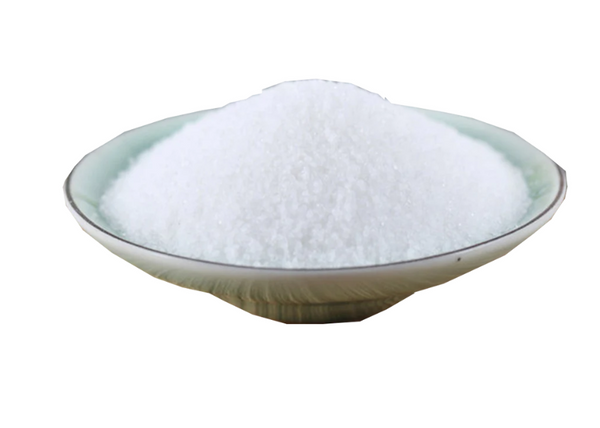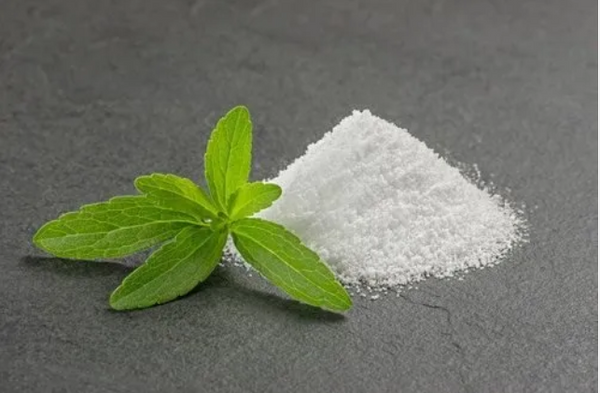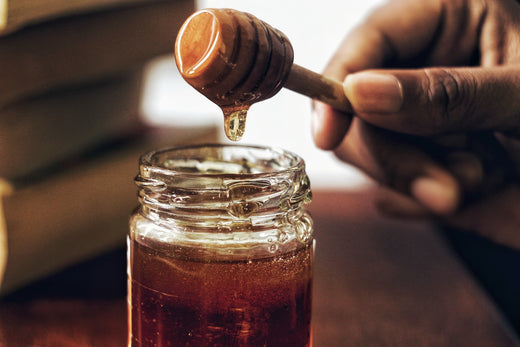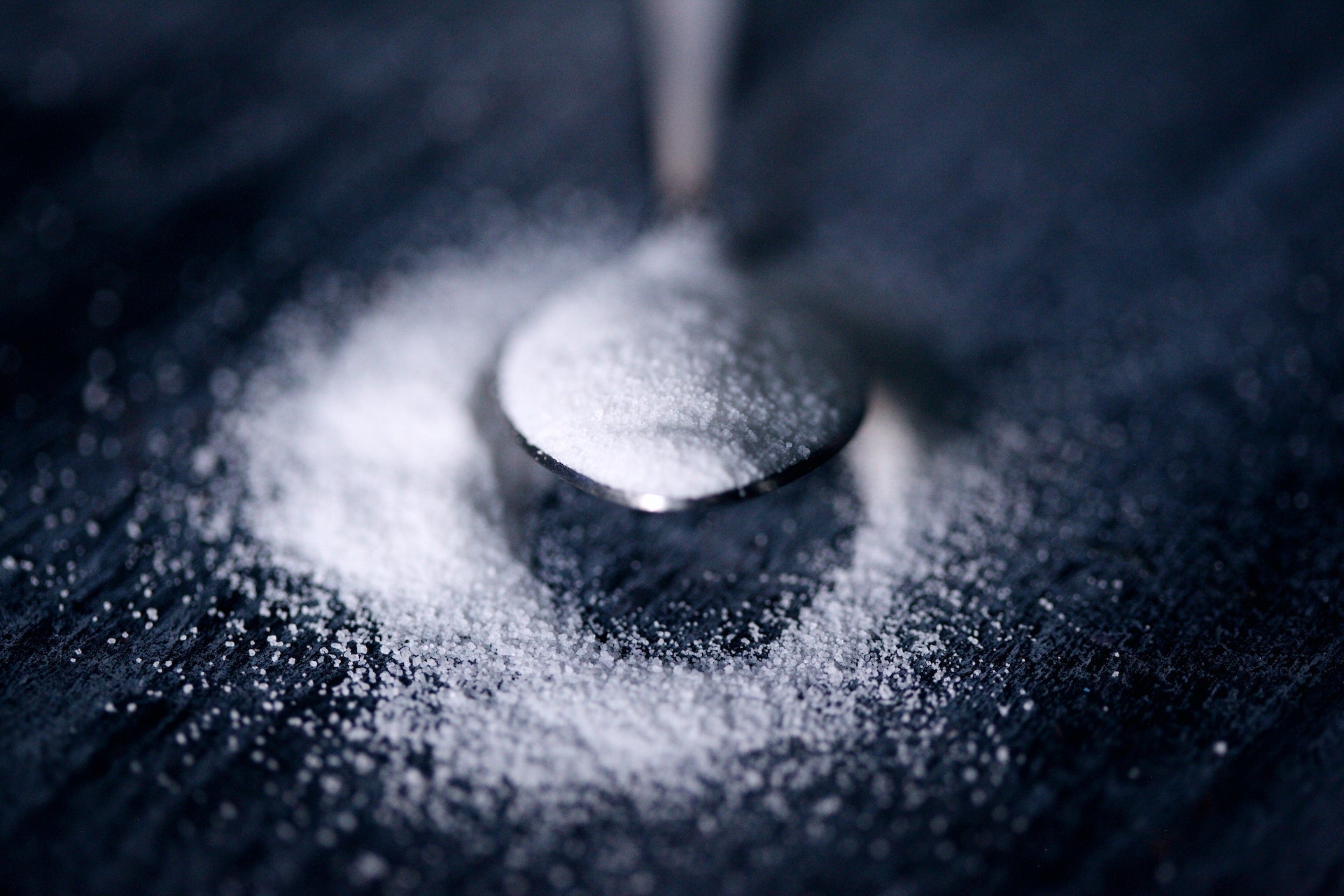
Erythritol Vs Stevia: 9 Difference, Benefits, Effects, Etc.
In modern times, an increasing number of people show concern about their health and dietary habits. As a result, individuals are opting for healthier alternatives by replacing traditional sugar. In this regard, erythritol and stevia, two low-calorie sweeteners, are becoming increasingly popular.
Both stevia and erythritol are natural sweeteners. They reduce ordinary white sugar consumption without increasing body fat or affecting blood sugar levels. They also cater to a wide range of dietary requirements, including vegetarian and gluten-free diets.
However, it is critical to note that these two sweeteners are not interchangeable. Their contrasts may surprise you. Although they both come from natural sources, the key distinction is in their production procedures.
Fermenting maize yields erythritol, an artificial sweetener. Stevia, on the other hand, is a plant-based natural sweetener. Erythritol is also less sweet than stevia, making it a better choice in some culinary applications.
This article aims to highlight the fundamental differences between erythritol and stevia. As a consequence, you'll be able to pick the finest option for your preferences with confidence.

Source: Image by Pexels
What is Erythritol?
Similar to sorbitol and xylitol, erythritol belongs to the sugar alcohol category. It is a type of carbohydrate naturally occurring in various fruits and vegetables. It possesses approximately 70% of the sweetness of sugar and is nearly calorie-free.
Produced on a large scale through artificial means, erythritol stands out for its lack of any lingering aftertaste. Furthermore, blood sugar spikes and milder laxative effects are absent compared to some other sugar alcohols.
Erythritol not only shares a visual resemblance to sugar but also mimics its taste, making it a versatile choice for baking. Consequently, it has gained widespread popularity within the food industry, particularly as an additive in keto and other low-carb products. It is effective for individuals with diabetes.
Furthermore, erythritol often constitutes the largest proportion by weight in many "natural" stevia and monk fruit products. Since stevia and monk fruit are significantly sweeter than sugar, only a small quantity is sufficient. Erythritol primarily serves to provide the desired crystalline appearance and texture reminiscent of sugar that consumers expect. You can also read about Sucralose vs Stevia.
How It's Made?
Erythritol comes through the fermentation of the naturally occurring sweet starches found in fruits and vegetables. The term "fermenting" refers to the process in which beneficial bacteria consume the starch and convert it into erythritol, effectively eliminating all the sugar.
To put it simply, this process is akin to the fermentation methods used in familiar everyday products such as yogurt, wine, and beer.
Benefits of Using Erythritol
- Diabetes-Friendly: Erythritol does not affect insulin or blood sugar levels whatsoever. In fact, for individuals with diabetes, erythritol may potentially contribute to reducing blood glucose levels. It occurs by reducing sugar absorption and influencing various glucose metabolism pathways.
- Low Calorie: By containing only 6% of the calories found in table sugar, replacing sugar with erythritol can be a valuable strategy for reducing the total calorie intake. Individuals who are actively counting calories or managing their weight can easily use this substitution. It will effectively decrease their daily caloric consumption.
- Antioxidant Properties: Erythritol acts as a free radical scavenger. It can mitigate the effects of oxidative stress within the body. Thereby, it aids in the protection of your body's cells.
- May Reduce Risk of Heart Disease: Thanks to its antioxidant qualities, erythritol might also offer cardio-protection. It lowers the likelihood of heart disease development in individuals with diabetes.
- High Digestive Tolerance: Most individuals are unlikely to encounter digestive problems or other adverse effects when consuming erythritol in moderate quantities. This is primarily because the bloodstream absorbs most of the erythritol. It does not undergo fermentation by gut bacteria, which is what typically leads to symptoms like gas and bloating.
What is Stevia?

Source: Image by Pexels
Stevia is a natural sweetener extracted from the Stevia rebaudiana Bertoni plant, originally indigenous to South America. For centuries, the people of this region have relied on this natural sweetener to enhance the flavor of their foods, beverages, and medicinal preparations.
The sweetness of stevia primarily comes from steviol glycosides, which are approximately 200-300 times sweeter than sucrose, the conventional table sugar. Interestingly, stevia leaves contain over 30 different types of glycosides, with the most prevalent ones being stevioside and rebaudioside A.
These two compounds are present in the highest concentrations. In addition to their sweetening properties, stevia leaves also contain a variety of other components such as proteins, carbohydrates, lipids, dietary fibres, oils, vitamins, and phenolic compounds. Our doc.
Other Guides:
How It's Made?
After collecting the stevia plant leaves, it undergoes a drying process. These dried leaves are immersed in hot water to produce an extract. The resulting extract undergoes filtration and centrifugation to yield pure, concentrated stevia suitable for consumption.
Despite its initial complexity, this procedure is surprisingly straightforward and entirely free from the inclusion of any artificial additives throughout. In fact, it closely resembles the process employed for crafting other plant-based extracts, such as vanilla.
Benefits of Using Stevia
- Diabetes-friendly: Stevia is devoid of sugar content. Thus, it exerts no influence on blood glucose levels. Even more remarkable is that consuming stevia can help lower blood sugar levels.
- Calorie-free: With its calorie count at zero, replacing sugar with stevia in your daily dietary choices helps to reduce overall calorie intake. This can be particularly advantageous for individuals aiming to shed excess weight.
- Lowers cholesterol: The consumption of stevia decreases both total cholesterol and LDL cholesterol levels. Therefore, it is a heart-healthy alternative to sugar.
- Anti-cancer properties: An element found in stevia has the ability to specifically target and eradicate cancerous cells. Therefore, the further progression of cancer growth. Here, you can also check Zandu's range of sugar-free chyawanprash in India.
Comparing Nutrients in Erythritol and Stevia
Both erythritol and stevia offer significantly lower calorie and carbohydrate content when compared to regular sugar.
Standard table sugar typically contains approximately 4 calories per gram to provide a reference point. In contrast, erythritol contains a mere 5% of the calories found in sugar, equivalent to roughly 0.2 calories per gram. Furthermore, it's only about 60-80% as sweet as regular sugar.
Similarly, stevia is a nonnutritive sweetener, meaning it nearly lacks calories. Stevia extracts may encompass various compounds derived from the stevia leaf. Some of these can be anywhere from 50 to 400 times sweeter than conventional sugar.
It's worth noting that stevia does contain trace amounts of certain vitamins and minerals. However, these are typically removed during processing. Additionally, due to the fact that both sweeteners are used in small quantities, they are likely to contribute little to your overall nutrient intake.
Difference Between Erythritol Vs Stevia
|
Aspect |
Erythritol |
Stevia |
|
Source |
Sugar alcohol derived from corn |
Natural sweetener from a plant |
|
Taste |
Similar to sugar, with a cooling effect |
Sweet with a slight aftertaste |
|
Caloric Content |
Very low calorie (about 0.2 calories per gram) |
Virtually calorie-free |
|
Glycemic Index |
Zero (does not affect blood sugar) |
Zero (does not affect blood sugar) |
|
Sweetness |
About 70-80% as sweet as sugar |
Much sweeter than sugar, often 50-300 times |
|
Digestibility |
Mostly absorbed by the small intestine, limited fermentation |
Not absorbed, passes through the body |
|
Health Considerations |
Generally considered safe, but excessive consumption may cause digestive issues |
Generally considered safe, but some may have sensitivities |
|
Suitable for Keto |
Yes |
Yes |
|
Suitable for Diabetics |
Generally suitable |
Generally suitable, but individual responses may vary |
Uses for Erythritol and Stevia
- Beverages: Frequently employed for sweetening beverages, including carbonated soft drinks, flavoured water, sports beverages, and powdered drink blends.
- Cooking and Baking: This encompasses items such as cookies, cakes, bread, marinades, and sauces. It can withstand a high temperature.
- Desserts: You can use sucralose to add sweetness to desserts, including pies, custards, cheesecakes, and mousse.
- Packaged Foods: Artificial sweeteners are present in a variety of packaged foods, including candies, sugar-free snacks, and desserts. It's crucial to examine the product labels carefully.
- Sugar-Free and Low-Calorie Products: It is a commonly used component in sugar-free or low-calorie items, including yogurts, ice creams, diet sodas, and protein bars.
Here's a positive note: Both erythritol and stevia exhibit heat stability. This implies that they can endure high temperatures without diminishing their sweetness or undergoing significant chemical alterations. Consequently, both of these sweeteners are well-suited for cooking and baking purposes.
Effect of Erythritol and Stevia on Weight Management

Source: Image by Spencer Wing from Pixabay
Erythritol and stevia both have advantages for controlling weight. Despite having very few calories, erythritol is unlikely to substantially influence your daily calorie intake. This is a result of its quick absorption by the small intestine and quick removal from the body. Erythritol thus has no chance of being turned into energy, which is why it is calorie-free.
On the other hand, stevia is inherently calorie-free and does not add to your daily calorie intake. This characteristic also means that it does not serve as a viable source of energy; it simply enhances the flavor of dishes. All in all, erythritol and stevia are both valuable tools for weight management, offering a means to introduce sweetness into your diet without contributing extra calories.
What Sweetener is Better for Your Health?
Organic stevia leaf extract boasts several advantages over erythritol. One of its most significant benefits is its complete lack of calories, making it an excellent choice for individuals aiming to shed pounds or maintain a healthy weight. Moreover, stevia has demonstrated potential health perks, including lowering blood sugar levels, reducing blood pressure, and serving as an antioxidant.
In contrast, erythritol has been associated with digestive issues such as bloating, gas, and diarrhoea, particularly when consumed in substantial quantities. While erythritol shares the attribute of having no calories and not causing blood sugar spikes, it does not provide the same spectrum of health benefits as stevia. We also suggest other natural resources like Honey via Zandu.
Also read:
Conclusion
To summarise, organic stevia leaf extract and erythritol are outstanding natural sugar substitutes. However, organic stevia leaf extract emerges as the superior option for individuals seeking a zero-calorie sweetener with a low glycaemic index and potential health advantages.
On the other hand, erythritol remains a suitable choice for those who prefer a natural sweetener but might require a slightly larger quantity to achieve the desired level of sweetness. As a precaution, it is always advisable to consult with your healthcare provider before substantially altering your diet.





